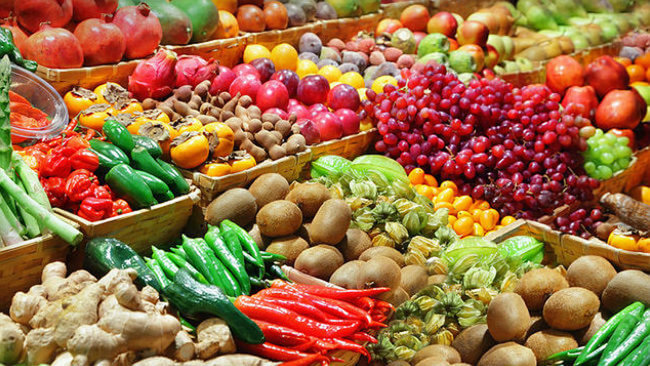Andrew Natsios, former Administrator of USAID and current Advisory Committee Chair of HarvestPlus, examines the many ways in which biofortified crops are empowering smallholder farmers to improve nutritional outcomes and how their use can be scaled up in the future.
The Nutrition for Growth Year of Action got off to an auspicious start at a virtual launch event last month, where prominent stakeholders announced investment commitments of more than $3 billion toward the upcoming Nutrition for Growth Summit‘s goal of addressing the hunger and nutrition crisis.
Separately, the UN is convening a Food Systems Summit (UNFSS) in September to identify strategies for making food and agriculture systems not only more nutritious but also more equitable, environmentally sustainable, and resilient to shocks such as the Covid-19 pandemic.
The pandemic’s serious impacts on health, well-being, and economies have heightened the sense of urgency to ensure that food systems can deliver nutritious diets to everyone, under any conditions. But food systems transformation will only happen if we succeed in engaging and empowering the hundreds of millions of smallholder farming families around the world who are highly vulnerable to malnutrition.
These families work three-quarters of all agricultural land and their diets depend primarily on what they grow. In Africa, 80 per cent of farms – 40 million across the continent – are of smallholder size. Often, these smallholders lack the means and the financial incentives to produce more nutritious foods for themselves, as well as for those who purchase from them.
Biofortification: A proven and scalable solution
There is one proven, agriculture-based strategy, specifically tailored to smallholder families, which should be part of the solution toward food systems transformation: biofortified staple crops. These are varieties of rice, wheat, maize, beans, and other common staples that have been conventionally bred to contain nutritionally-significant levels of iron, zinc and/or vitamin A—all micronutrients that are essential for maintaining good health and ensuring proper mental and physical development in children. Biofortified crops are scientifically proven to improve nutrition and health outcomes when eaten regularly.
Biofortification research began in the 1990s within the CGIAR international agricultural research partnership, under the leadership of the HarvestPlus programme, as a response to widespread micronutrient deficiency among the world’s rural poor. The first biofortified crop variety was officially released to farmers in 2004 (a vitamin A orange sweet potato variety in Uganda).
Biofortified crops make nutrition accessible to farming families: They are one-for-one replacements for the lower-nutrient staple varieties that these families already grow. There is no sacrifice in yield or other agronomic traits important to farmers. These crops are also affordable for smallholder farming families, requiring no additional investment, and deliver micronutrients less expensively than typically higher-nutrient foods such as fruits, vegetables, and animal source products, which tend to be too costly for these families.
Biofortified crops also provide livelihood opportunities for farmers as well as small-scale entrepreneurs. SME food businesses are springing up throughout Africa, Asia, and Latin America to develop and sell food products with biofortified ingredients, creating a market for smallholders’ biofortified crops and an attractive financial incentive to grow them.
Most significantly in the Covid-19 era, biofortified crops also provide key micronutrients (particularly zinc and vitamin A) that boost health resilience by strengthening immune systems. Furthermore, since the micronutrients are delivered through staple foods, they are more likely to reach and benefit female household members. Research has shown that, in many rural regions, male household members have preferential access to animal source foods and other higher-nutrient food items.
Currently, more than 340 varieties of 11 staple crops are available to farmers in 40 countries, benefiting about 50 million smallholder family members. The CGIAR research centers provide biofortified varieties as public goods to countries, where national agricultural researchers work with farmers to adapt these varieties to local conditions and farmer preferences.
Biofortified crops are ready for rapid scale-up, based on this extensive proof of concept under real-world conditions. The HarvestPlus goal is to work with multiple partners to reach one billion people with these nutritious crops by 2030.
Strong interest among policymakers
There is strong and growing interest among national leaders for scaling up biofortification in their countries. In just the past few months, Indian Prime Minister Narendra Modi made a public declaration in favor of biofortified crops and their integration in nationwide food assistance programmes.
Tanzania released comprehensive biofortification guidelines that provide welcome guidance for farmers and food businesses. And Guatemala’s government included biofortified crops in a new national strategic food reserve that is part of a new Covid-19 economic recovery plan. These and other leaders recognise the valuable role biofortification can play in better food systems.
Commitments at this year’s two summits to scaling up biofortification will show that the international community has the interests of the most vulnerable rural families top of mind. Biofortified crops are an equitable, inclusive, and complementary response to global malnutrition that put positive food systems change in the hands of these families.
Andrew Natsios served as Administrator of the United States Agency for International Development from 2001-2006. He is Advisory Committee Chair of HarvestPlus, and executive professor at the Bush School and director of the Scowcroft Institute of International Affairs at Texas A&M University.
The post Biofortified Staple Crops: Empowering Smallholder Farmers to be Food System Change Agents appeared first on Farming First.


